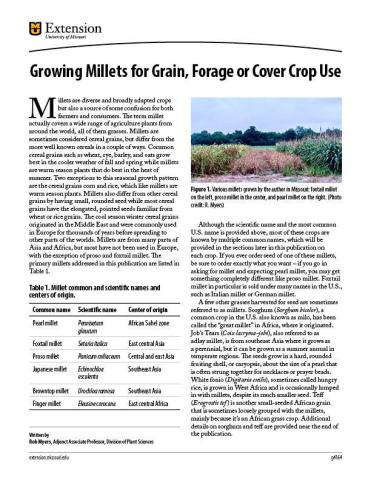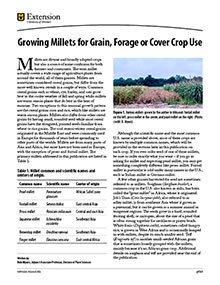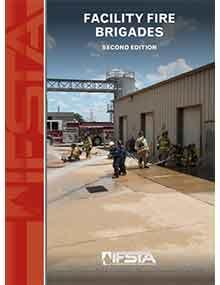

Facility Fire Brigades, 2nd Edition Manual E-book
New $80.33
The manual assists management and safety professionals in commercial and industrial occupancies with compliance to applicable laws and regulations regarding training and management of fire brigades. Trainees and instructors will find benefit in using the 144 skill sheets to meet the JPRs specified by NFPA 600, Standard on Facility Fire Brigades, (2015) and OSHA regulations in Title 29 of the Code of Federal Regulations, Part 1910.
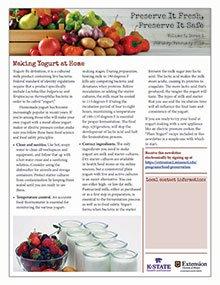
Preserve It Fresh, Preserve It Safe: 2019, No. 1 (January/February)
New
Step-by-step tips for homemade yogurt: sanitize tools, control temperatures, and use just milk plus starter for safe, satisfying results.
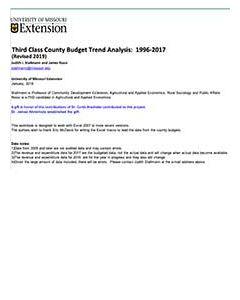
Missouri’s Third Class County Budget Trend Analysis
Revised
Use this workbook to analyze fiscal trends in Missouri counties as well as carry out studies on budget, fiscal trends, and performance to identify needed actions. Compare past performance to set standards to gauge them alongside each other as well.
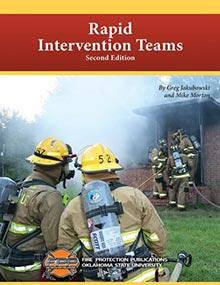
Rapid Intervention Teams, Second Edition Manual
New $61.97 to $72.90
This manual presents the purpose of a rapid intervention team (RIT) program and how to implement one in an emergency response organization. It serves as a guide to the regulations and standards that apply to RIT including information from NFPA 1407 related to training and operational concepts.
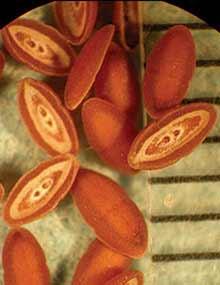
Missouri Weed Seeds, Page 35
Reviewed
Plantaginaceae (Plantain family), known collectively as plantains, has about 11 species in the state.
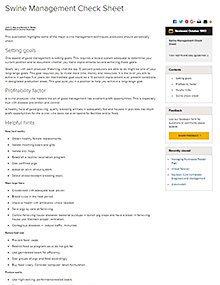
Swine Management Check Sheet
Reviewed
This publication provides a comprehensive checklist for swine producers, covering essential management practices from breeding to farrowing.
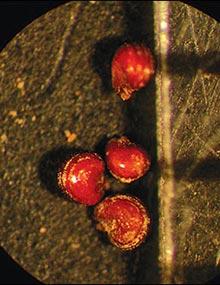
Missouri Weed Seeds, Page 03
Reviewed
Other than carpetweed, only two species of plants in the family Aizoaceae are known to occur in relatively isolated locations in Missouri
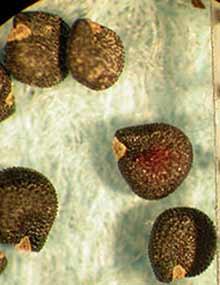
Missouri Weed Seeds, Page 38
Reviewed
Of 20 genera known within Portulacaceae (Purslane famiy), there are only three present in the state. Purslane is the most common among them.
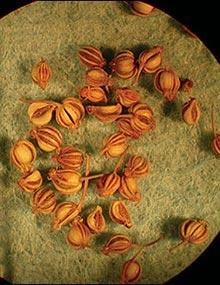
Missouri Weed Seeds, Page 06
Reviewed
Apiaceae (Carron family), also known as the parsley family, is a large family that includes several herbal plants, such as caraway, dill and fennel. It also contains several toxic plants, such as poison hemlock and water hemlock.
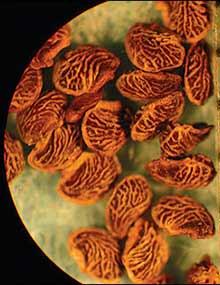
Missouri Weed Seeds, Page 41
Reviewed
Many of the members of Rosaceae (Rose family) are commonly grown as cultivated plants, including rose, apple, pear and strawberry. A notorious member, multiflora rose, is one of the state’s noxious weeds.
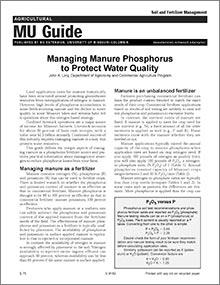
Managing Manure Phosphorus to Protect Water Quality
Reviewed
This guide offers strategies to manage manure phosphorus, reducing runoff and protecting Missouri's water resources.
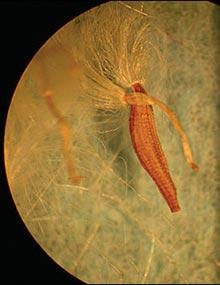
Missouri Weed Seeds, Page 09
Reviewed
Explore the diverse milkweed species in Missouri, featuring detailed seed images with millimeter rulers for accurate size reference.
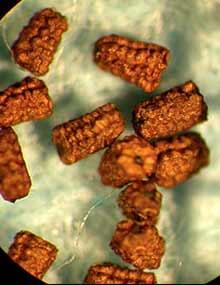
Missouri Weed Seeds, Page 44
Reviewed
Of the nearly 280 genera of Scrophulariaceae (Figwort family), at least 25 are known to be in Missouri. The genera that contain mullein and speedwell are among the most common.
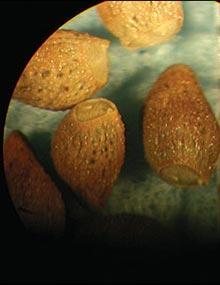
Missouri Weed Seeds, Page 12
Reviewed
Boraginaceae (Borage family) also includes several nuisance plants known as “beggar’s lice” because their fruits readily attach to clothing and other articles.
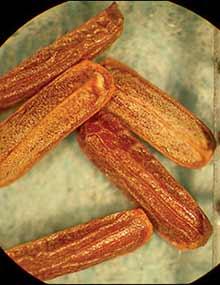
Missouri Weed Seeds, Page 47
Reviewed
Detailed information on the Verbenaceae family, including images of blue and hoary vervain seeds with millimeter scale references.
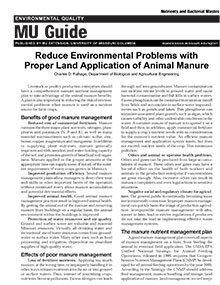
Reduce Environmental Problems With Proper Land Application of Animal Manure
Reviewed
Learn how to manage livestock manure to enhance soil health, reduce fertilizer costs, and protect water quality through proper application practices.
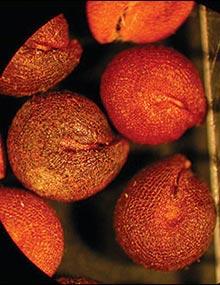
Missouri Weed Seeds, Page 15
Reviewed
Only a few members of Capparidaceae (Caper family), such as spider flower, occur in Missouri.

Gases and Odors From Swine Wastes
Reviewed
Gases from swine waste, such as ammonia and hydrogen sulfide, can impact air quality and health in confinement facilities.
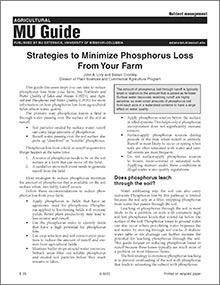
Strategies to Minimize Phosphorus Loss From Your Farm
Reviewed
This guide discusses steps you can take to reduce phosphorus loss from your farm.
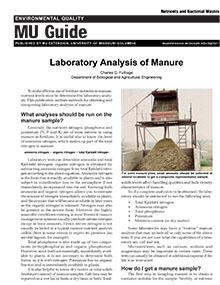
Laboratory Analysis of Manure
Reviewed
Laboratory analysis of manure determines nutrient levels—nitrogen, phosphorus, potassium—and moisture content for effective fertilizer use.
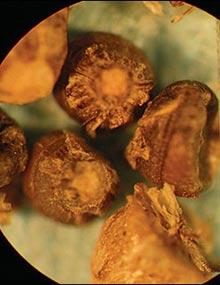
Missouri Weed Seeds, Page 18
Reviewed
At least 18 different Chenopodium genera members, also known as lambsquarters, are present in Missouri. Kochia is also another important member of Chenopodiaceae (Goosefoot family).
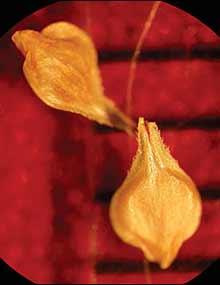
Missouri Weed Seeds, Page 21
Reviewed
Missouri is home to more than 200 species of sedges (Cyperaceae). Agronomically, yellow nutsedge, Cyperus esculentus, is considered to be the most problematic in prevalence of this family of plants.
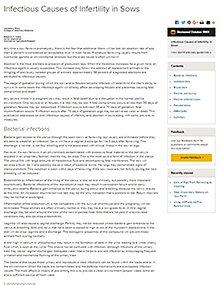
Infectious Causes of Infertility in Sows
Reviewed
This webpage discusses infectious causes of infertility in sows, including bacterial infections, their impact on reproduction, and preventive measures.
